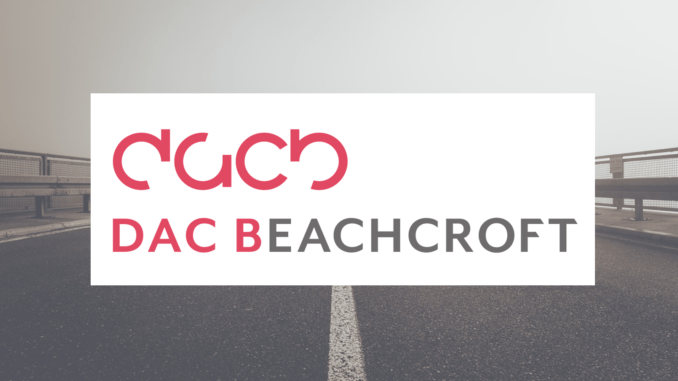
For some time now insurance law firms have been pioneering the development of their own client-facing legal tech tools, sometimes using AI tech, sometimes other forms of automation and workflow improvement. Examples include, Kennedys – which had an early start, and more recently, BLM, and also Clyde & Co, which has been building smart contract applications.
Now DAC Beachcroft is launching a new product.
The tool, called BAIL, has been built by the firm’s claims research and development hub, called the Innovations Lab, and Audatex, and provides an insurance company with a rapid assessment of liability.
How it works:
- Insurers answer simple questions about a motor accident via an online portal,
- They select a road layout image that best indicates the accident scenario, and add or request testimonials from witnesses, where available,
- Once BAIL has captured the data it needs, it delivers an immediate answer on liability,
- Links to Google Maps and historical meteorological data also help pinpoint the accident’s exact location and weather conditions at the time, enabling the user to produce a concise ‘locus report’, alongside the liability outcome,
- BAIL’s questions can either be completed by the claims handler of an insurance company on behalf of the policyholder,
- Or, this can be done by the policyholder themselves using BAIL’s self-service feature. This self-service capability enables policyholders to input their own account of the accident without needing to speak to a claims handler or investigator, generating increased efficiencies and time savings.
All in all a handy application, heavy on the data, aimed at helping the insurance company and the end client. It is also driving efficiency and saving money.
It marks a continued push among law firms, and in particular insurance law firms, to build their own tools to help clients. Insurance certainly lends itself well to this approach, as so much of insurance is about handling structured data (e.g. where did something happen, when, who did it, how fast was something moving, what were the weather conditions? etc), then quickly assessing it based on fixed rules to provide an output.
The move also follows a partnership with legal tech company, Ampbah, to pilot a platform that streamlines how solicitors instruct and communicate with barristers in high-volume, insurance-related litigation.
Commenting on BAIL, Peter Allchorne, Partner and Head of DAC Beachcroft’s Innovations Lab, said: ‘A key attraction of BAIL is its simplicity. It’s easy and intuitive to use, and the question set is entirely dynamic, only asking what’s relevant to return a quick, accurate and consistent decision on liability.’
—
Is this a game-changer? It depends on how much you want to change the game. If you take the ‘traditional law firm model’ as a baseline, then yes, this is a significant change. Law firms building tech tools which are clearly providing services that are #morethanlaw is a departure. As explored in a recent piece on this subject, the trad law firm model is changing. Law firms are, just a little bit, moving into the world of the tech company.
The question is really: how much is this changing?
As explored in the ‘More Than Law: Is The Traditional Big Law Model Over?‘ piece, the reality is that the vast majority of the income of law firms that are also providing tech tools remains in the hands of traditional fee earners – and will for many years, no doubt. What perhaps is different now is that not to offer these additional capabilities may start to make rival firms look less appealing.
Is this a game-changer? It depends on how much you want to change the game.
Generally, not having such offerings probably won’t drive clients away – not today, at least. But, as expectations change – and they seem to be changing quite rapidly now – maybe sooner than we expect clients will indeed start to walk away from law firms that don’t make their lives easier with tech tools such as the above.
Much depends on client feedback and the desire of law firm management teams to really expand this type of offering. It could become a truly significant game-changer, or it may remain a very nice bolt-on that helps with client stickiness.
In the insurance sector there certainly seems to be a high level of competition now among the law firms when it comes to what tech solutions they can offer, so perhaps here is where we should be most focused when we are looking at #morethanlaw?